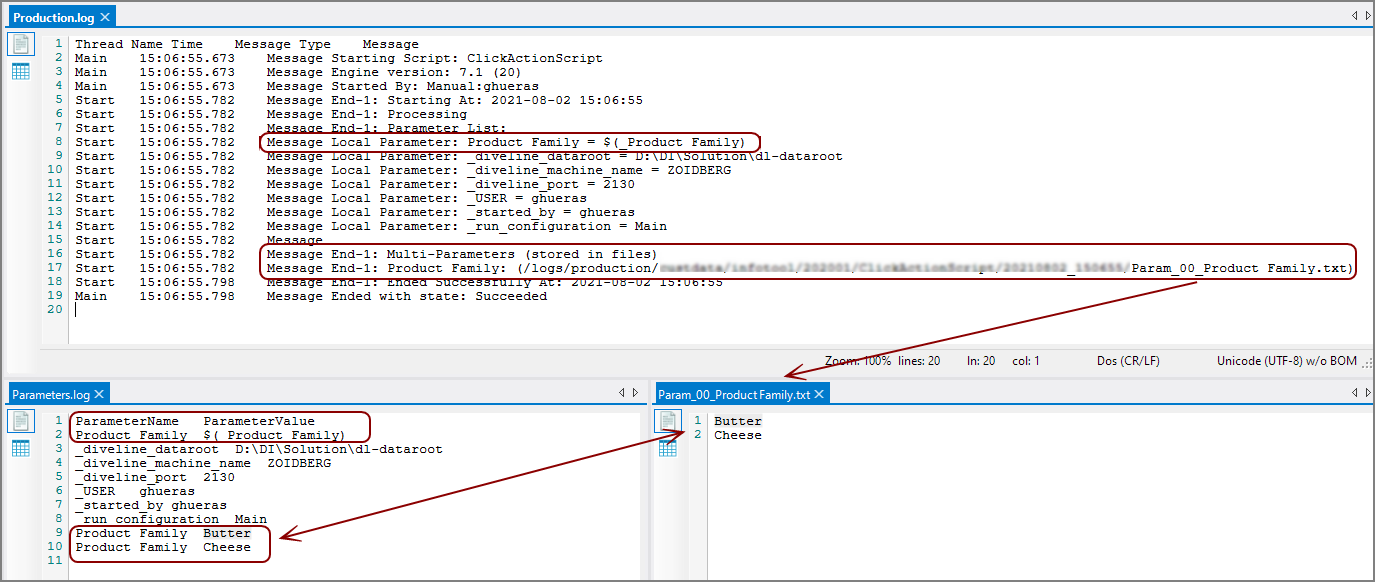Creating script-level parameters in Production makes these parameters available to all nodes that accept parameters and all branches of a script.
Use caution when defining script-level parameters when there might be dependencies of parameter values between simultaneous branches of the script.
NOTE: If you are using more than one run-time configuration, these script-level parameters are only available for the configuration that they are created in.
To define script-level parameters:
-
Click on the white space in the Task Flow panel to bring up the
 Overview pane.
Overview pane. - In the Manage Configurations section, select the configuration where you want to define the parameters.
- In the Current Configuration section, in the parameter table, enter a Parameter Name and Value for each parameter that you want to create.
- Save the tab.
These parameters are now available to use throughout the script. They can be accessed by right-clicking and choosing Insert Parameter and then selecting the specific parameter name.
Script-level parameters can reference parameters that were defined outside the script, such as those defined in DivePort. For example:
- Run-time parameter named _USER that contains the name of the user logged in to DivePort when the script runs: USER=$(_USER).
- Parameter named _Sales Region passed from DivePort that references a QuickView with the currently selected sales region: Sales Region=$(_Sales Region).
- In the case of multiple QuickView selections from DivePort, Production writes them to a file and sets the value for the parameter to be the filename. You need to write your Integrator or other scripts to be able to handle the file, rather than multiple values.
- For example, if a DivePort QuickView for Product Family has two values selected when the Production script is called, you would define the parameter using $(_Product Family).
-

- When executed, the Production logs indicate multiple values were received and stored in a text file. The value for the parameter is the project path to the text file with the array values.
-

